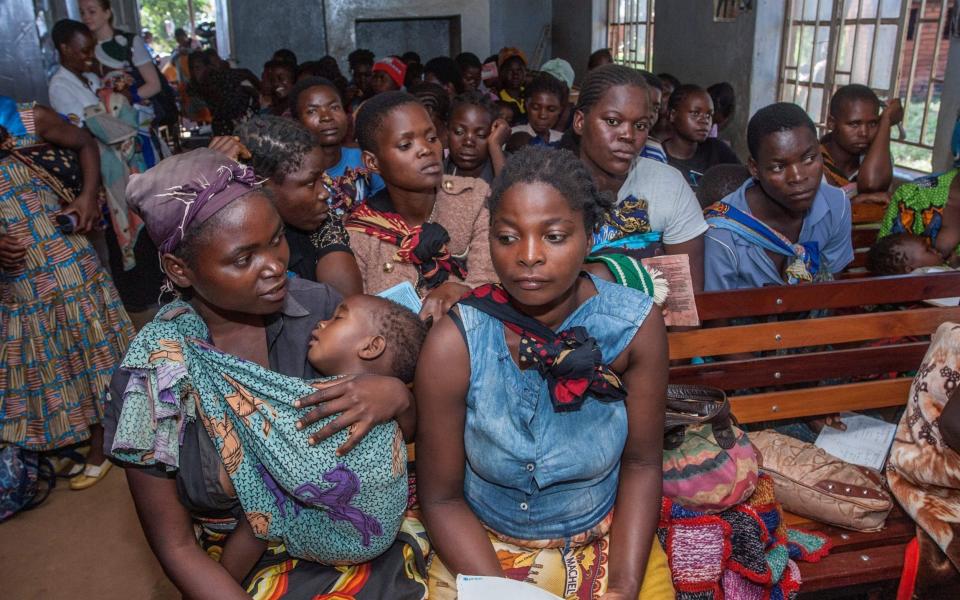Tackling malaria at the grassroots is key to its elimination

I must have been about three years old when I first contracted malaria – too young to realise what it was. But I was struck down a second time at the age of eight and the memories of that awful disease – the loud voices and ringing in my head – are still with me.
Growing up in Cameroon, malaria was a constant threat and I knew many people who fell ill and even died from the disease. Who would think that something as tiny as a mosquito bite could have such devastating consequences?
Since 2000, huge progress has been made in the fight against malaria. Between 2000 and 2015 the number of cases of malaria fell by 37 per cent and death rates dropped by 60 per cent. Millions of deaths have been averted due to improved treatments, prevention and diagnosis.
But while we must celebrate that progress, in the last couple of years there has been a worrying resurgence of the disease due, for the most part, to drug and insecticide resistance, and to a proliferation of fake drugs.
As we mark World Malaria Day on April 25 it is time to think again about how to combat a disease that still kills 250,000 children in Africa every year. Scientific research into vaccines and drugs is of course vital, but working with communities to tackle the disease where it hits – in villages and towns across Africa – is a key part of the battle.
Here, malaria is a prime example of a disease that is first treated in the community with home remedies, traditional medicine or street drugs. The disease is so omnipresent that it is often treated as a trivial matter.
In Cameroon people say they have “un petit palu” – a little malaria – as if it’s as straightforward as catching a cold. People get it, treat it, recover; get it, treat it, recover. The cycle goes on and on and even if it does not kill, the disease exacts a huge social and economic burden.
Patients usually go to a health centre only if a fever fails to subside, often unaware that even a simple malaria infection can quickly turn into the severe form of the disease and prove deadly.
If they can afford it patients will go to a pharmacy and get paracetamol – this will reduce the fever but it won’t kill the parasite. Or they’ll boil leaves or try some other home remedy.
Another problem are the myths and cultural practices that still surround the disease. Many people in malaria-affected countries believe that mosquito nets – a vital preventive tool – keep the heat in and are associated with death.
In remote areas, women’s health is often a secondary consideration and, in some cases, women cannot go to a clinic without their husband’s permission or be seen by a male health worker.
Pregnant women’s altered immune systems make them more vulnerable to malaria, but not enough women access preventive treatment during pregnancy.
In rural areas women give birth with a traditional birth assistant, typically an older woman from the village rather than a trained health professional. They give birth at home and miss out on the mosquito nets given out at health clinics. Babies and children under five are most at risk of the disease therefore these nets are crucial to prevention.
But there is a group who are ideally placed to combat both blasé attitudes to the disease and the myths and cultural practices that prevent people seeking treatment: community health workers. Typically volunteers, they bring health care to isolated communities and ensure access to reliable medicine. The work they do is remarkable.
In Cameroon, it is estimated in 2018 that 70 per cent of malaria cases were reported by community health workers, while 30 per cent of cases were reported by doctors or nurses.
Community health workers carry out vital health education, urging pregnant women to attend health clinics as a key part of malaria prevention. Failing that they can conduct home visits to educate women on the best ways to prevent the disease.
Civil Society 4 Malaria Elimination was established to tackle the disease at the grassroots. It is the first global network of community and civil society organisations working for the elimination of malaria. It aims to promote more inclusive and effective programmes that focus on communities and are based on social, gender and human rights.
We can prevent and cure malaria. It is unacceptable that this disease, which has been with us for some 50,000 years, is still killing one child every two minutes. I see the concrete progress we are making every day but we must take the fight to the people the disease hits hardest.
Olivia Ngou is the founder and executive director of Impact Santé Afrique. She is also a member of Civil Society for Malaria Elimination (CS4ME) and the RBM Partnership to End Malaria
Protect yourself and your family by learning more about Global Health Security
